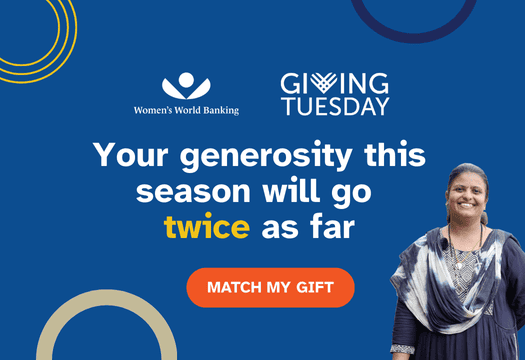
I never thought that selling our shares in an IPO—the holy grail of private equity investing—would be such a grueling process. But it was all worth it when on April 28th in the pre-dawn hours of a New York morning I checked the news from India. The subscriptions had come in slowly at first, but in the final day of marketing of its initial public offering, one of our fund’s key investments, Ujjivan Financial Services Ltd. (India), had broken records. The domestic-only Ujjivan IPO was oversubscribed nearly 41x… far exceeding the domestic-only IPO record set by another microfinance firm just days earlier (Equitas Holdings had been 17 times oversubscribed). At that moment, the $50M inclusive finance company we’d invested in—dedicated to providing financial services to Indian women in the lowest economic strata—was valued at over $375M and would climb above $425M once it started trading.
“So what?,” you may say, “it’s just another IPO.” That’s what IPOs do—they turn every crackpot idea into billion-dollar businesses.” But this is different. The success of Ujjivan is a powerful statement about the value of serving low-income women with financial services, and the ability of mission-aligned investors such as Women’s World Banking’s Capital Partners LP to help them achieve impressive returns, from both a social and financial perspective.
Women’s World Banking Capital Partners is a private equity limited partnership promoted by the global nonprofit Women’s World Banking. It makes direct equity investments in women-focused inclusive finance institutions. Established in 2012, with investment capital from 27 Limited Partners, who buy into its mission, Capital Partners seeks to prove Women’s World Banking’s long-held conviction that providing poor women with access to financial services is a profitable business model that also contributes to the economic growth and welfare of families and communities. And, critically, that investors, even small ones, can play an important role in influencing institutions to stay focused on women as a key part of their growth strategy and future profitability. This is known as gender lens investing.

Women’s World Banking’s history with Ujjivan preceded the establishment of the Capital Partners fund. Ujjivan became a member of the Women’s World Banking network in 2008. Membership in the network requires not only that a financial institution offer services to un- or under-served women clients, but also that it meets a rigorous set of financial and social performance standards to ensure it delivers on the double bottom-line. CEO Samit Ghosh’ strong commitment to both financial and social returns was evident in the daily operations of the then-rapidly growing microfinance institution, making it the perfect candidate to be a network member, and, once the fund was launched in 2012, an investee company.
One of the benefits of being a Capital Partners investee company is access to Women’s World Banking’s nearly 40 years of experience developing financial products, services and delivery channels that work for low-income women. Research specialists, product design experts and leadership development programs are available through technical assistance. When this technical assistance is combined with equity investment, (and attendant shareholder influence, and in some cases (including Ujjivan’s) a board seat,) it becomes a powerful value driver for an institution.
In 2011, Women’s World Banking conducted research on behalf of Ujjivan to understand the opportunity to expand financial access for Ujjivan’s target clients through individual lending. Our research found significant demand across the business sectors occupied by low-income women. Prior to this work, Ujjivan was only offering group loans, the staple product of microfinance institutions. However, Women’s World Banking knows that group loans are not enough to support the capital needs of microentrepreneurs as they grow. As an investor and board member, Capital Partners became a strong advocate of pursuing this new business line, and Ujjivan’s board took on the challenge of designing, piloting and rolling out individual lending with Women’s World Banking’s assistance. Women’s World Banking’s product experts provided technical assistance to develop the appropriate credit assessment methodology, marketing, training and operations to implement this new product. This pivot to individual lending became one of Ujjivan’s key market differentiators. When the next round of fundraising came in 2015, investors pointed to the individual lending strategy as one of the value drivers, and bought the shares at a 20% boost in valuation. The institution also caught the eye of India’s regulator, the Reserve Bank of India (RBI,) and was given the opportunity to apply for a Small Bank License. Ujjivan lost no time in pursuing the Small Bank License considering this would allow it to offer desperately needed savings products to its women clients. That decision ultimately brought it to the capital markets in order to shore up its capital base with domestic investors as required by the RBI, and to its record-breaking IPO. With a client base of low-income women, a track record of offering them a convenient and varied product set, and consistently stellar financial and social performance (it is among Women’s World Banking highest performers on social metrics), investors lined up 41 deep for every share on offer to get a chance to invest in Ujjivan and its women clients.
Women’s World Banking and Capital Partners is proud of the role it played in this story. During the time of its stewardship, Capital Partners acted as an ally in the board room to help keep the focus on women and Women’s World Banking experts assisted the institution in unlocking the full value of its women client base. The exciting IPO result in turn provides Capital Partners with its first, very compelling, data point toward demonstrating the business case for investing in women. With the profits from selling our Ujjivan shares, we will be able to invest in more institutions to help them along the same path to serving more women with the financial services they need to build a better future for themselves and their families.




